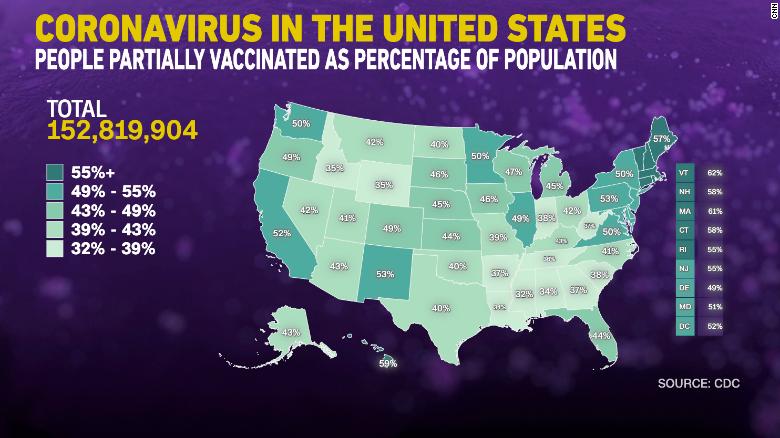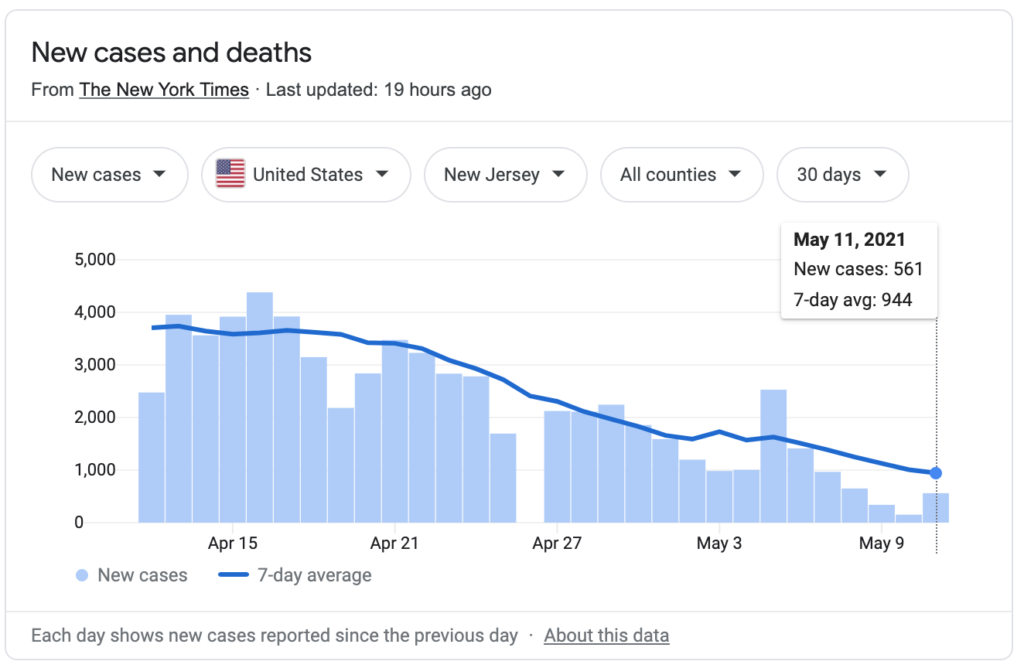The purpose of this CXTech Week 19 2021 newsletter is to highlight, with commentary, some of the news stories in CXTech this week. What is CXTech? The C stands for Connectivity, Communications, Collaboration, Conversation, Customer; X for Experience because that’s what matters; and Tech because the focus is enablers.
You can sign up here to receive the CXTech News and Analysis by email. Please forward this on if you think someone should join the list. And please let me know any CXTech news I should include.
Covered this week:
- Programmable Communications Results Season
- SoftBank invests $60M in ADA
- TADSummit Asia 2021 Week 2
- Are we the Baddies?
- Excellent Matrix Review
- Infobip Acquires Anam
- Fixing digital identity
- Roku surpasses 53 million users
- Verizon’s self-imposed data privacy limits contributed to the demise of its media ambitions
- Huawei’s ability to eavesdrop on Dutch mobile users is a wake-up call for the telecoms industry
- People, Gossip, and Frivolous Stuff
Programmable Communications Results Season
Twilio posted first quarter 2021 revenue of $590.0 million, up 62% year-on-year. With a loss from operations of $197.3 million for the first quarter of 2021, compared with GAAP loss from operations of $92.7 million for the first quarter of 2020. And guidance of $591 – $601 for Q2, anticipating a soft landing as things slowly get back to normal after the pandemic.
Bandwidth posted total revenue for the first quarter of 2021 was $113.5 million, up 66% compared to $68.5 million in the first quarter of 2020. Within total revenue, CPaaS revenue was $100.1 million, up 69% compared to $59.1 million for the first quarter of 2020. With Voxbone contributing $22.1 million.
Ringcentral posted total revenue increased of 32% year over year to $352 million, as their channel strategy (Avaya, Atos, AT&T, BT, Telus) started to contribute to the results.
We’re entering a ‘post-pandemic’ phase, yet revenue growth is robust at 62% for Twilio, not the 132% we saw in August last year. But nonetheless impressive.
The pandemic is on the decline in the US, 46% of Americans have received at least one dose of the vaccine, people are slowly returning to work. My home state of NJ new cases are heading in the right direction. However, some regions of the world are re-entering lockdown because of highly contagious variants and not following scientific guidance.
For the rest of 2021 it will be a mixed picture globally, though once you’re fully vaccinated, it’s time to start living again within the guidelines. Like have dinner with your vaccinated friends and neighbors. I am looking forward to the day I can walk into a shop without a mask, rather than today remembering I’m supposed to be wearing a mask and hurriedly put it on…


SoftBank invests $60M in ADA
Axiata Digital Advertising (ADA) is a Malaysia-based digital marketing company with a valuation of $260M. Founded in 2018, ADA is a group company of Malaysian telco Axiata.
ADA designs and executes integrated digital, analytics and marketing solutions to help businesses gain market insights, optimise cost and reach and acquire customers. Its footprint includes nine markets in South and Southeast Asia, including Malaysia, Singapore, Indonesia, Thailand, Cambodia, the Philippines, Sri Lanka, Bangladesh, and South Korea.
I’m adding ADA to my list from the weblog, Keep and Eye on Malaysia. It’s a Telco creating value across a range of related industries. And keeping them all are arm’s length from the core business.
TADSummit Asia 2021 Week 2
Week 2 began as strong as week 1, and just kept on going strong. See below.
Unlocking the Internet of Things with telco APIs: Telstra’s Track and Monitor by Developer Advocate Michelle Howie and Track and Monitor Product Owner Lauren Demarchi, Telstra. An insightful presentation on the success of Track and Monitor, and the growing importance of APIs for a Telco’s business.
TeleSign’s Findings on the Future of Digital Identity by Guillaume Bourcy, Data Growth and Strategy at TeleSign. An excellent review of digital identity, the important role TeleSign plays in merging offline and online identities. Plus some highly entertaining scenes, taking advantage of this online format 🙂
Web is Communications by Dominique Hazael-Massieux, W3C, Web Technology Expert & Software Engineer. The Web is Communications, and any company involved in programmable communications should be part of the W3C.
And you can see all TADSummit Asia Week 1’s presentations here.
Are we the Baddies?
The 2 articles below from Ars Technica and The Guardian (which is now 200 years old) reminded me of the “Are we the Baddies” scene from the show “That Mitchell and Webb Look.”
Biggest ISPs paid for 8.5 million fake FCC comments opposing net neutrality.
The largest Internet providers in the US funded a campaign that generated “8.5 million fake comments” to the Federal Communications Commission as part of the ISPs’ fight against net neutrality rules during the Trump administration, according to a report issued today by New York State Attorney General Letitia James.
Nearly 18 million out of 22 million comments were fabricated, including both pro- and anti-net neutrality submissions, the report said. One 19-year-old submitted 7.7 million pro-net neutrality comments under fake, randomly generated names. But the astroturfing effort funded by the broadband industry stood out because it used real people’s names without their consent, with third-party firms hired by the industry faking consent records, the report said.
A bill aims to stop abusers stalking ex-partners. US telecom firms are lobbying against it
The top lobby group for the US wireless industry is quietly seeking to weaken proposed legislation that has been designed to protect victims of domestic violence by allowing them to remove themselves from family phone plans.
Companies including Verizon, T-Mobile and AT&T Wireless are seeking to protect themselves from possible future liability and enforcement in the event that they do not adequately comply with the new proposed legislation. Advocates say the bill would help prevent abusers from surveilling and stalking their victims after leaving the relationship.
Excellent Matrix Review
Even today I find myself explaining what Matrix is several times a week. I always start with: Matrix is an open source project that publishes the Matrix open standard for secure, decentralised, real-time communication. Element is an implementation of the open standard that can also host a Matrix server for you.
Next come the analogies, it’s like an open source version of Microsoft Teams, just far easier to use, that enables easy bridging with other messaging services like Slack. We use that bridging all the time at TADHack.
The above linked article is great, with some nice quotes:
- “Matrix is an open-sourced protocol developed in 2014 by a team then working for Amdocs. The standard is based on HTTP (to facilitate messages) and WebRTC (to facilitate voice calls). It works on a decentralized model with any compatible client.”
- Thanks for the mention of TADHack 🙂 “Many leading organizations such as Red Hat, Mozilla, Uber, Samsung, United States Armed Forces, TADHack, W3F, and UpCloud are using Matrix-based solutions for internal communication. This allows them to build custom communication apps with added security without being bound to an ecosystem.”
Infobip Acquires Anam
Infobip continues its acquisition spree buying SMS firewall service provider Anam that offers solutions to 80+ MNOs. No price was given. Anam is now part of Infobip’s Strategic Operator Partnerships group.
Fixing digital identity
Interesting piece from CallSign on how digital identity can be proven through software that passively collects multiple different data signals and behavioural data points without affecting the user experience.
At TADSummit Asia 2021 we also have a nice piece from Guillaume Bourcy, on TeleSign’s Findings on the Future of Digital Identity.
Roku surpasses 53 million users
This one surprised me. I have first, second and third generation Roku devices. But since Amazon, Google and all the bundled clients in TVs; they’re not used anymore in our home. Even the workout TV in the basement is now on an old Amazon device.
Roku revenue was up 79% year-over-year to US$574.2 million. Roku users streamed 18.3 billion hours in Q1 2021, up 49% from this time last year. This translated to an ARPU of US$32.14, up 32% year-over year. The shift to streaming from PayTV is benefiting Roku.
While Roku’s platform segment – which encompasses its AVOD service The Roku Channel and advertising– is increasingly becoming the central part of the company’s business, device sales continue to be a strong money maker. Player unit sales were up 14% year-over-year, with revenue at US$107.7 million (up 22% year-over-year). As for the platform business, revenue increased by 101% year-over-year to reach US$466.5 million.
Verizon’s self-imposed data privacy limits contributed to the demise of its media ambitions
In CXTech Week 18 2021 I covered the sale of Yahoo and AOL to Apollo. This article backs up the issue I raised on “violated the privacy telecom customers expect from their telco,” with much more detail.
Huawei’s ability to eavesdrop on Dutch mobile users is a wake-up call for the telecoms industry
This isn’t new news. Rather a 2010 Cap Gemini report that KPN commissioned to evaluate the risks of working with Huawei infrastructure has been discovered. In the report it highlighted that Huawei personnel in the Netherlands and China had access to security-essential parts of KPN’s network – including the call data of millions of Dutch citizens – and that a lack of records meant KPN couldn’t establish how often this happened.
People, Gossip, and Frivolous Stuff
Piyush Gaur is now Director Of Products at Killi. Piyush has presented at TADSummit on using Alexa and Google Assistant for customers to interact with Telus. Killi is a privacy-compliant consumer ecosystem that enables consumers to take back control of their identity from those who have been using it without their knowledge and/or consent.
Amos Manasseh is now Head of Venture Building and Delivery APAC at Mach49. All the way back in 2015 Amos presented at TADSummit, when he was with WSO2.Telco.
Jonathan Grant has added another CEO role, this time Exlink, a knowledge exchange (Knowledge as a Service).
Jose Mario Elias is now Customer Success Director at MATRIXX Software.
You can sign up here to receive the CXTech News and Analysis by email.